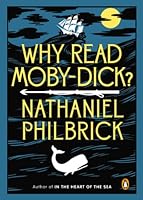
Your Novel Should Be More Like Moby-Dick


Essays should be linear, that’s what makes it an essay. If you have a mosaic of paragraphs that can be shuffled in any order, that’s not an essay, those are notes, no matter how poetic the prose.
Sequence matters. Our mind works via cause-and-effect. Of course, there’s value to creating tension, by purposely time jumping, or by injecting subtle
... See moreImagine if every novel you picked up had a detailed outline of the entire plot, including the ending, right at the start. Would you read the novel after reading the outline? Chances are, no. What would be the point? You already know the journey the writer is going to take you on. So as a writer, why do an outline and then have to spend all that
... See more